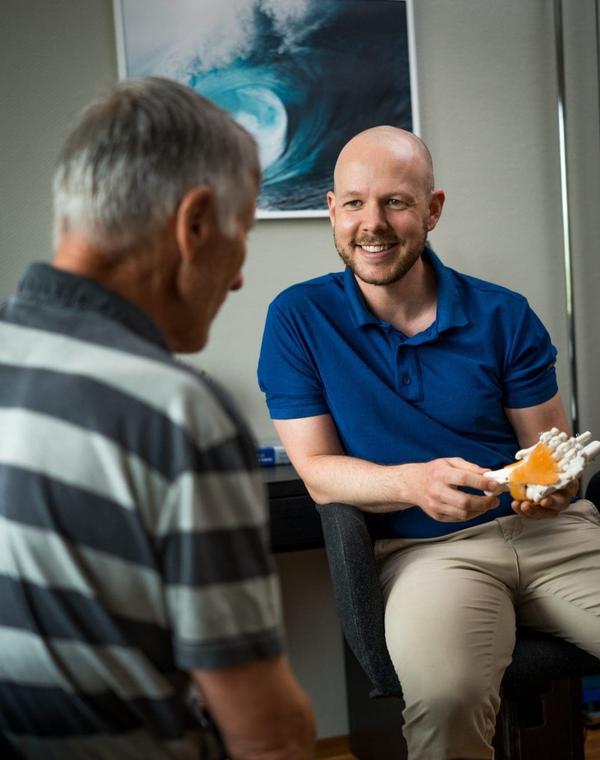Mortons Neuroma
Morton’s neuroma is a painful condition in the forefoot, usually between the third and fourth toes. It occurs when a nerve becomes compressed or irritated, causing burning pain, tingling, or the sensation of having a pebble in the shoe. The discomfort often worsens with tight footwear or prolonged pressure on the foot.
Treatment typically includes wearing wider shoes, using orthotic insoles, physical therapy, or anti-inflammatory medications. In some cases, cortisone injections or surgery may be necessary. Early intervention can help relieve symptoms and prevent the condition from worsening.
At Dr. Dropin, we have skilled practitioners who can assess your foot pain and help you receive the appropriate treatment.
See availability
Symptoms of Mortons neuroma
Here are common symptoms of Morton’s neuroma:
- Sharp or burning pain in the forefoot, usually between the third and fourth toes
- Tingling or numbness in the toes
- Sensation of having a pebble or fold in the shoe
- Pain radiating into the toes
- Worsening pain with walking, running, or wearing tight shoes
- Temporary relief when removing shoes or massaging the foot
- Clicking or "popping" feeling when pressing the forefoot (sometimes felt by a doctor)

Treatment and prognosis
At Dr. Dropin, we offer fast and professional care for foot pain, including conditions like Morton’s neuroma. Our goal is to reduce pressure on the affected nerve and relieve your symptoms – without unnecessary delays.
What we can help you with:
- Quick consultations with a GP or physiotherapist – no referral needed
- Assessment of foot mechanics and footwear, with guidance on proper shoe choices
- Custom orthotic insoles
- Prescription of anti-inflammatory medication if needed
- Cortisone injections administered by experienced doctors – for effective pain relief
At Dr. Dropin, you’ll meet healthcare professionals who listen, assess carefully, and initiate the right treatment when it suits you. Early intervention can mean less pain and faster recovery.
See availabilityWhen should you book an appointment?
If you recognize the symptoms above and are experiencing any of the following issues, we recommend seeking professional guidance:
- Pain or reduced mobility that has persisted for more than a week without improvement.
- Severe symptoms that you need assistance in reducing quickly.
- Symptoms that cause you concern or that you believe may be due to more serious conditions.
Remember that early assistance from a therapist can reduce the duration of your issues and contribute to achieving the best possible outcome. You should never worry that your problems are "too small" - we take all types of issues seriously.
See availability
Find clinic and therapist

Find therapist
Find a therapist that suits you and your needs by filtering on one or more criteria.

Telephone
Authorized healthcare personnel assist you over the phone. We answer the phone within 60 seconds. Free of charge.
Use your health insurance
We cooperate with all the major insurance companies, so that you can use your health insurance with us if you have foot pain or other problems.
Read more about how to use your health insurance here
What can you do by yourself?
Although treatment typically involves professional guidance and therapy, there are several measures you can take to alleviate symptoms and improve your condition:
- Wear wide and comfortable shoes with good support and low heels – avoid tight or high-heeled shoes
- Take breaks and rest your feet if you spend a lot of time standing or walking
- Avoid activities that worsen the pain, such as running on hard surfaces
- Use supportive insoles available at pharmacies or sports stores
- Massage your foot and toes regularly to relieve tension
- Stretch your foot and toes, for example by rolling a tennis ball under your foot
- Apply an ice pack (15–20 minutes at a time) for acute pain or swelling
- Maintain a healthy weight to reduce pressure on your feet